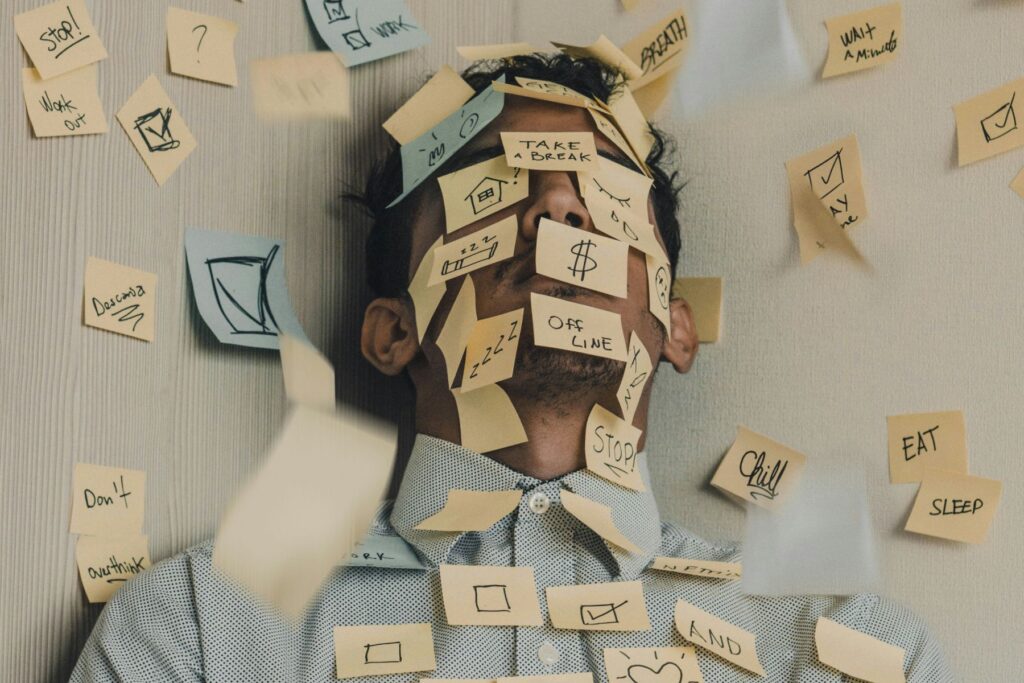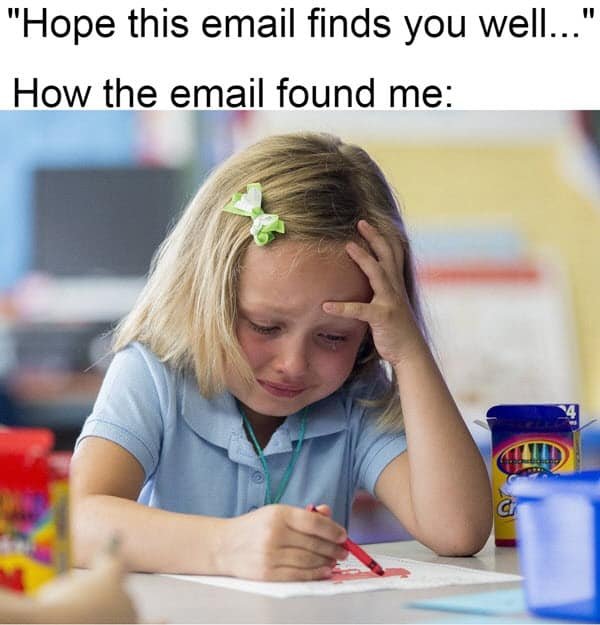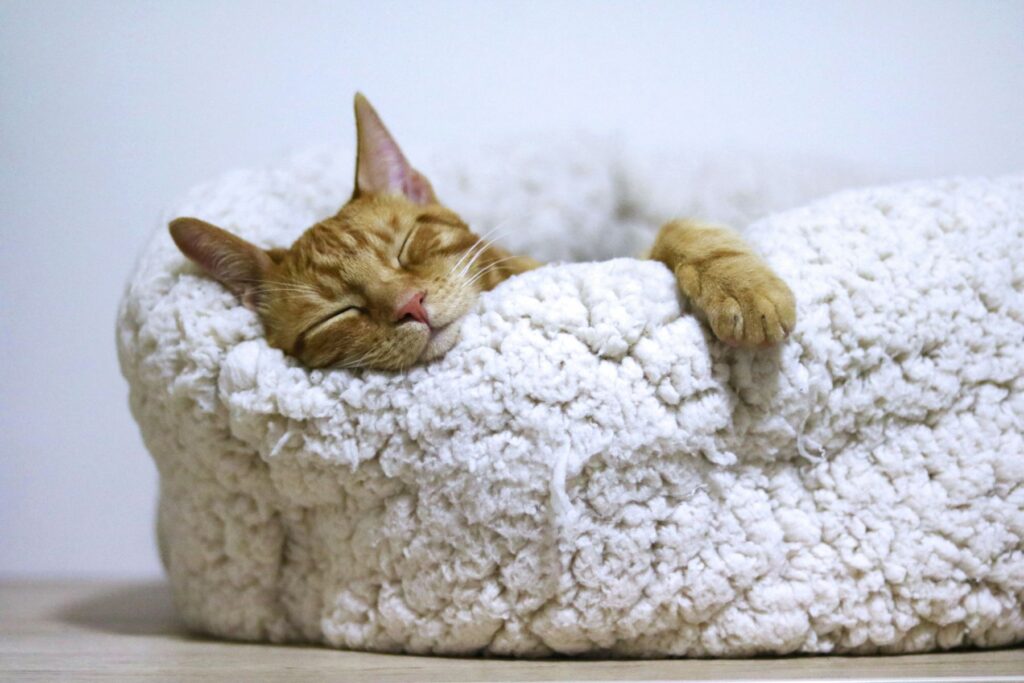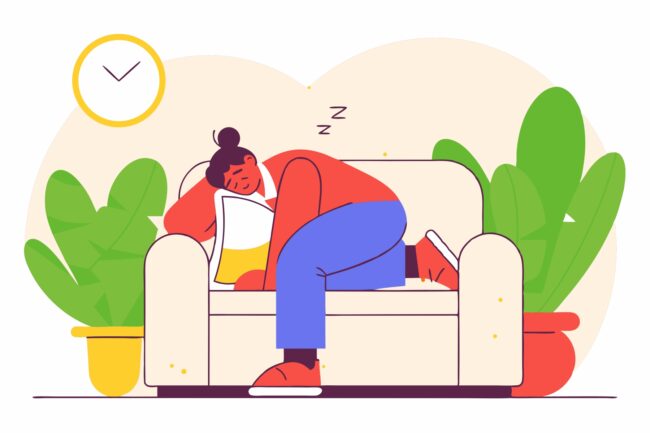There’s a kind of tired that sleep doesn’t fix.
It’s that deep-down kind of tired where even rest doesn’t feel restorative, and you’re running on a mix of muscle memory, caffeine, and the hope that someday your to-do list will finally end.
You know that scene in a movie where the character stares blankly at the wall, coffee in hand, while the world moves chaotically around them in fast-forward?
Yeah. Sometimes, being tired feels like that.
It’s the kind where you wake up groggy no matter how early you slept, where your mind feels foggy by mid-morning, and even simple tasks feel heavier than they should. You might find yourself feeling overextended by conversations, zoning out during work, or craving time alone without even knowing why.
This isn’t just physical tiredness. This is deeper.
If you’re nodding along—you’re not alone. What you’re feeling might be emotional exhaustion, mental fatigue, or just the weight of living in a fast-paced, hyperconnected world.
And here’s something that might help put a name to it:
What Is Allostatic Load?

In psychology and neuroscience, allostatic load refers to the cumulative wear and tear on the body and brain from prolonged exposure to stress.
It’s what happens when your nervous system stays in a state of alertness for too long—managing deadlines, absorbing emotional stress, processing daily decisions, and navigating unpredictable life stuff.
Unlike acute stress (which can be useful in short bursts), chronic stress keeps the body stuck in survival mode. Over time, this load can impact sleep, memory, energy levels, immune function, and emotional regulation.
When your allostatic load is high, even things you normally enjoy can start to feel overwhelming. That’s when rest stops being a luxury and becomes a necessity.
The Many Layers of Tired

When we say we’re tired, it helps to know what kind of tired we mean. That way, we can replenish ourselves in ways that truly nourish us.
1. Physical Tiredness
Your body is low on fuel. Sleep, hydration, and nutrition help here.
2. Mental Fatigue
You’ve been processing too much information, switching tasks frequently, or problem-solving for hours. This is often the result of cognitive overload.
3. Emotional Exhaustion
You’ve been holding space for others, suppressing your own emotions, or just carrying too much without time to process.
4. Social Exhaustion
You’ve been engaging more than your energy allows—especially in emotionally demanding conversations or group settings.
Each of these requires a different kind of rest. And sometimes, we need all of them.
Rest Isn’t Doing Nothing. It’s Doing What Restores You.

Let’s reframe self-care.
It isn’t always bubble baths or taking a day off (though those help too). Replenishing is about intentional recovery: the small, meaningful things that restore your internal resources.
According to Dr. Saundra Dalton-Smith, there are 7 types of rest, including emotional, mental, sensory, social, creative, spiritual, and physical. For now, let’s explore a few forms of rest that are especially helpful when you’re emotionally or mentally tired:
1. Emotional Rest: Letting Go of the Mask
- Say no to something that drains you.
- Give yourself permission to not be “on.”
- Journal about what you’re really feeling (no editing, just let it out).
Emotional rest is about being real with yourself, even if it’s just for five minutes. It’s the deep sigh after you drop the people-pleasing act, the relief of being honest when someone asks how you’re doing. If you’ve ever felt emotionally exhausted after a simple conversation because you had to hold in your real emotions, you probably need emotional rest.
2. Mental Rest: Why Single-Tasking Works
We often feel mentally exhausted not because we’re doing too much—but because we’re trying to do too much at once.
Multitasking, as it turns out, is a myth. What our brain actually does is called task switching. Each time we shift focus, we use mental energy to recalibrate.
This constant shifting creates something called attention residue—leftover thoughts from the previous task that cloud your focus.
Single-tasking, on the other hand, reduces mental clutter. It gives your brain the chance to go deeper, stay present, and perform better.
Try this: Work in 25-minute focus blocks (like the Pomodoro method), with short breaks in between. During that block, gently return to your chosen task every time your mind wanders. No need to be perfect. Just practice.
3. Sensory Rest: A Break from Input
Constant stimulation from screens, noise, and light can overwhelm our nervous systems. Think of the background hum of social media, nonstop notifications, fluorescent lighting, and even the constant chatter of city life. It adds up.
- Lower the lights or close your eyes for a moment.
- Sit outside and listen to nature instead of music.
- Turn off notifications and let your brain breathe.
Even a few minutes of intentional stillness can lower your stress response. If you’ve ever sighed in relief when you put your phone on Do Not Disturb, that’s your body asking for sensory rest.
4. Creative Rest: Absorbing Beauty Instead of Producing It
If you’ve been solving problems or creating non-stop, you might need a pause from creativity to simply receive it. Creative rest isn’t about making something beautiful—it’s about letting beauty find you again.
- Look at art, flowers, the sky.
- Listen to music without analyzing it.
- Read poetry or prose that nourishes.
It’s that moment when a quiet melody makes your shoulders drop, or when a sunset catches you off guard and makes you feel something. Creative rest invites inspiration back in, gently.
Be Gentle with the Pace
Replenishment isn’t a one-time fix. It’s a slow return. Some days you might feel lighter. Other days, the tired might still linger. That’s okay.
Start with one area: maybe you need emotional rest more than anything. Or maybe it’s mental quiet you’re craving. Pay attention to what kind of tired you are today, and meet yourself there.
Closing: Begin Again, Kindly
You’re not lazy. You’re not behind. You’re not doing life wrong.
You’re tired because you’re human. Because you care. Because you’ve been carrying more than most people see.
So breathe. Rest. Let yourself begin again, gently.
If your tiredness comes with emotions you haven’t had the time to feel, you might find comfort in learning how to create space for your feelings—even on the busiest days. And when your mind feels crowded and unfocused, it could be emotional clutter, not overthinking. Here’s how to begin gently letting that go too.
And if you ever forget how—come back to this. You deserve to feel whole again.



No Comment